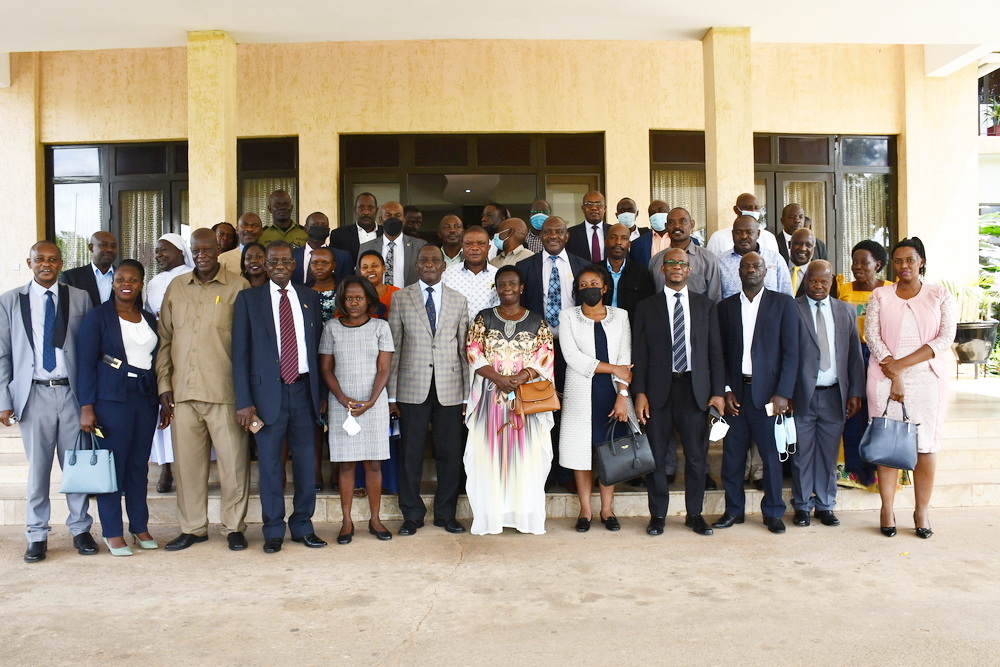The National Environment Management Authority-NEMA held an engagement/training of Resident District Commissioners (RDCs) and Resident City Commissioners (RCCs) in Environment and Social Safeguards.
The capacity building training and engagement held in Mbarara City, targeted a total of 30 RDCs/RCCs from Central and Western Uganda, with the objective of enhancing their capacity to effectively perform their roles and responsibilities as stipulated in the Constitution, the Local Government Act and the National Environment Act No.5 of 2019.
Section 27 of the National Environment Act provides for the establishment of District Natural Resources Committees comprising of both political and technical officers. These committees are required to manage the environment within their jurisdictions at local government level and ensure that environmental concerns are integrated into all development projects. RDCs and RCCs are members of their respective District/Urban Authorities Natural Resources Committees.
Speaking at the workshop, the NEMA representative of the NEMA Board Chairperson, Hon. Eng. Yorokamu. B. Katwiremu said: “Environment and Social Safeguards are critical to de-liver environment justice in the sustainable development framework. Environment must be at the heart of the sustainable development process. Development must not only deliver economic benefits but also environment and social benefits.”
Mbarara Resident City Commissioner Rtd. Lt. Col. James Mwesigye appealed to the RDCs/RCCs to treat the management of the environment with the urgency it deserves. “We should take management of the environment seriously. We should go out there and do what we are supposed to do. I want to challenge all of us to deliver services to the people of Uganda and Government as expected.”
In his remarks, NEMA Executive Director Dr. Barirega Akankwasah said: “Environment Management is decentralized to Local Governments, Urban Authorities and communities who directly interact with and utilize the resources. Decentralization of Environment management is aimed at promoting public participation and involvement of the local people. This can greatly be enhanced when local leaders are knowledgeable about their roles and execute them.”
He further called upon the RDCs/RCCs to use their Constitutional mandate to support Environment mainstreaming, law enforcement against environment degradation and public awareness.
A series of other capacity building trainings have been planned under the UgIFT program for RDCs/RCCs in other regions of the country.
Government is implementing the Uganda Inter-Fiscal Transfer (UgIFT) Program for Results. The program aims at addressing challenges faced in financing Local Government service delivery in the selected sub-programs of Education, Health, Water, Agriculture (Micro-scale irrigation). Under the UgIFT program NEMA is responsible for ensuring compliance with Environmental and Social Safeguards across all the programs.








